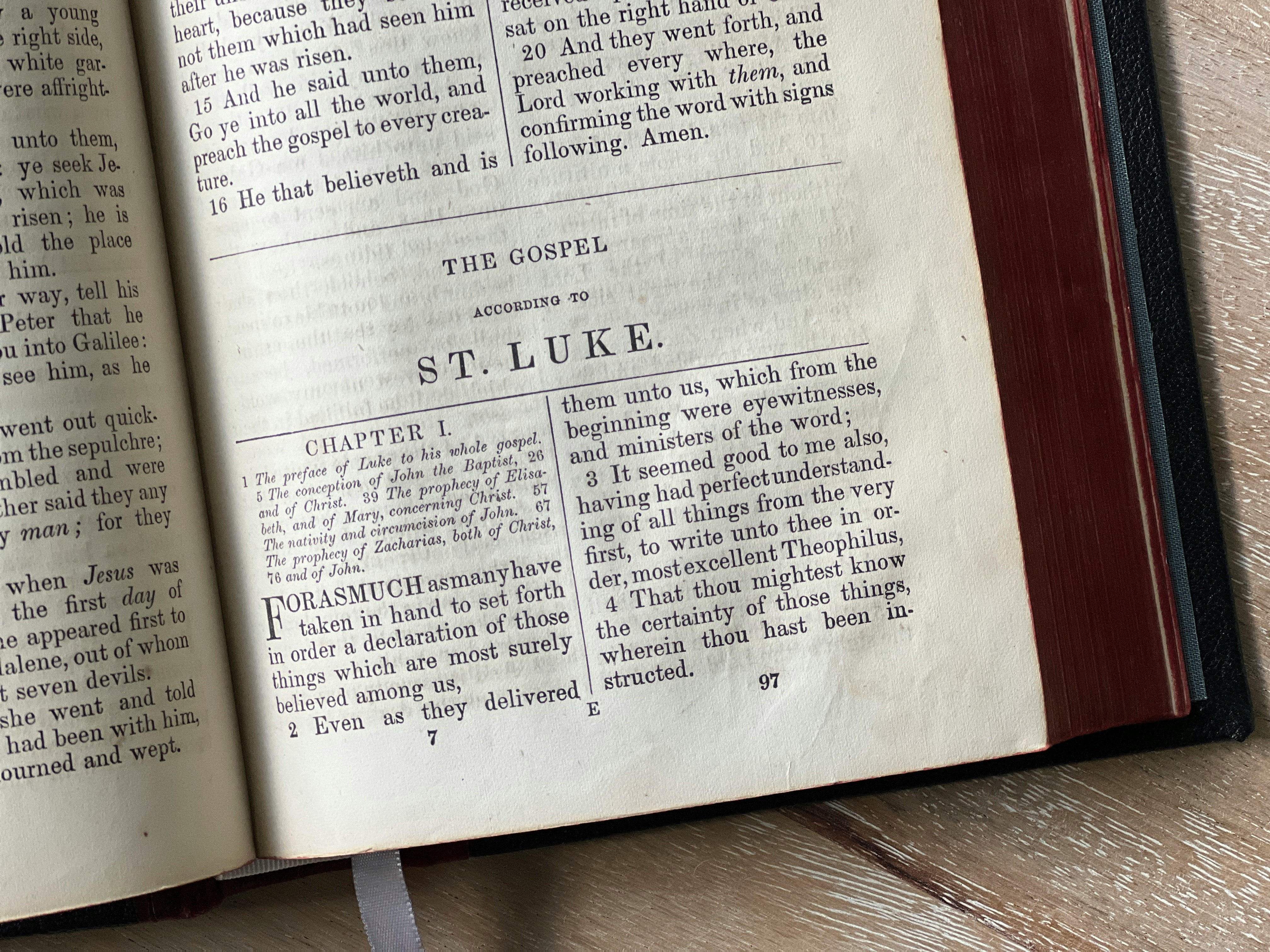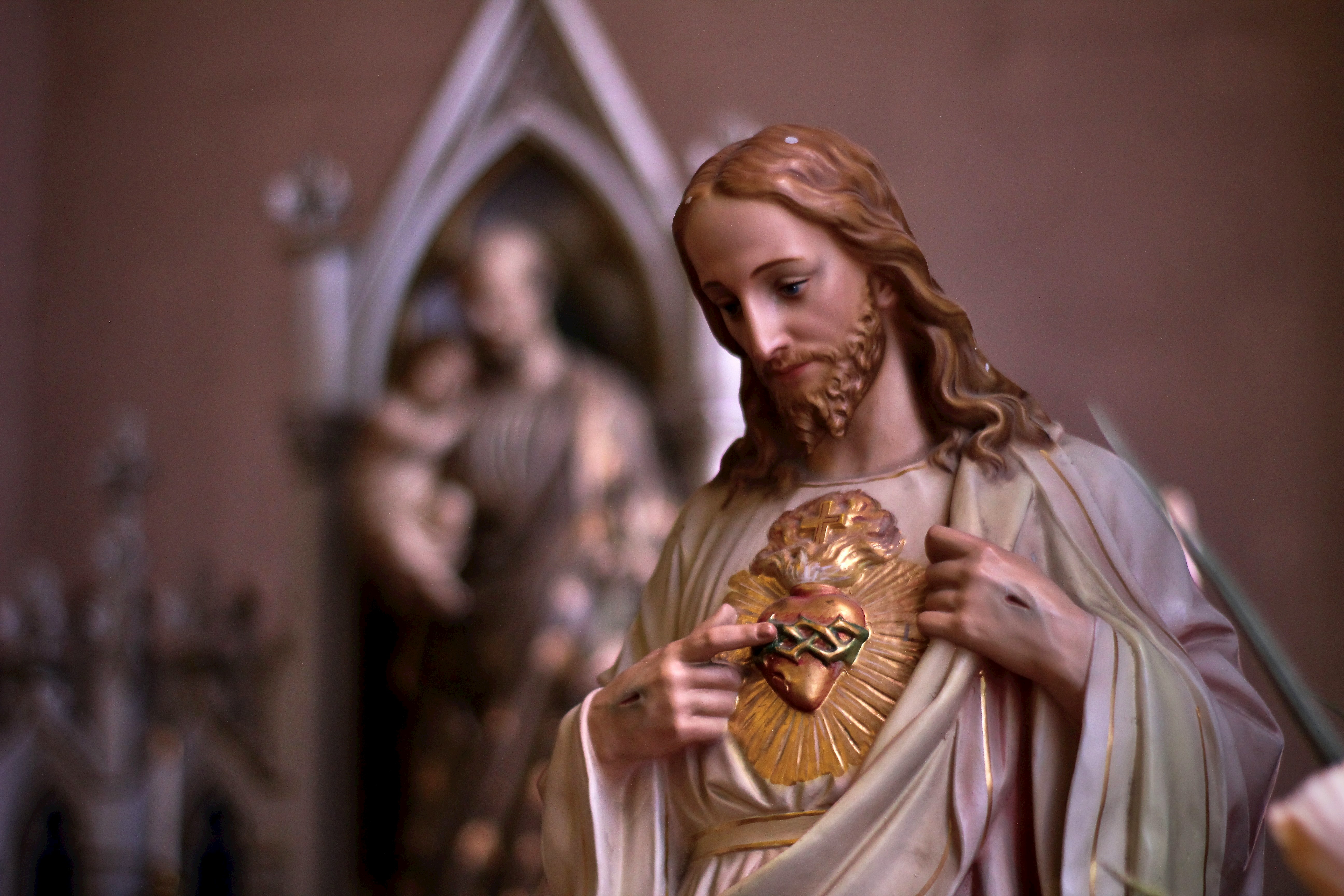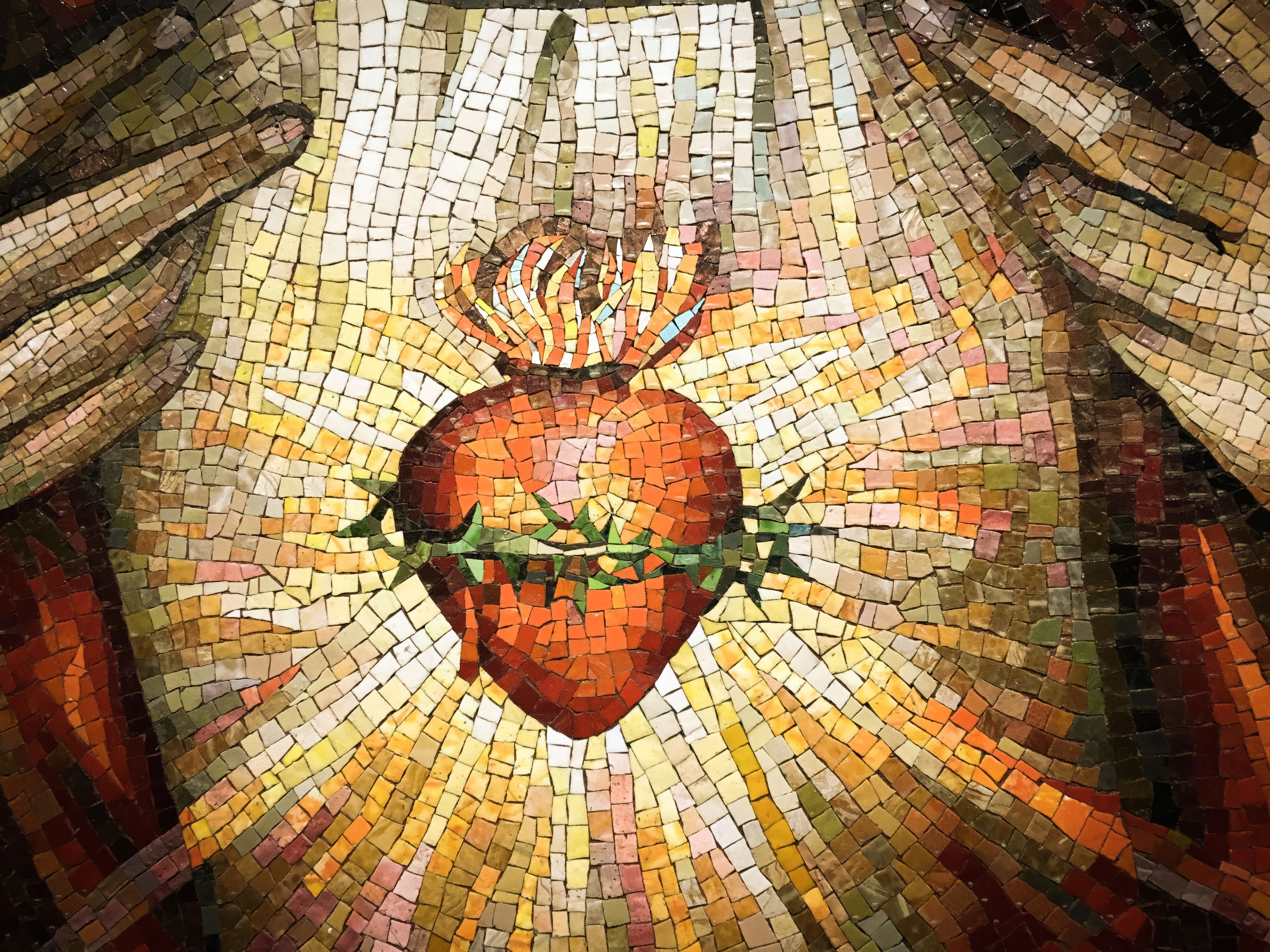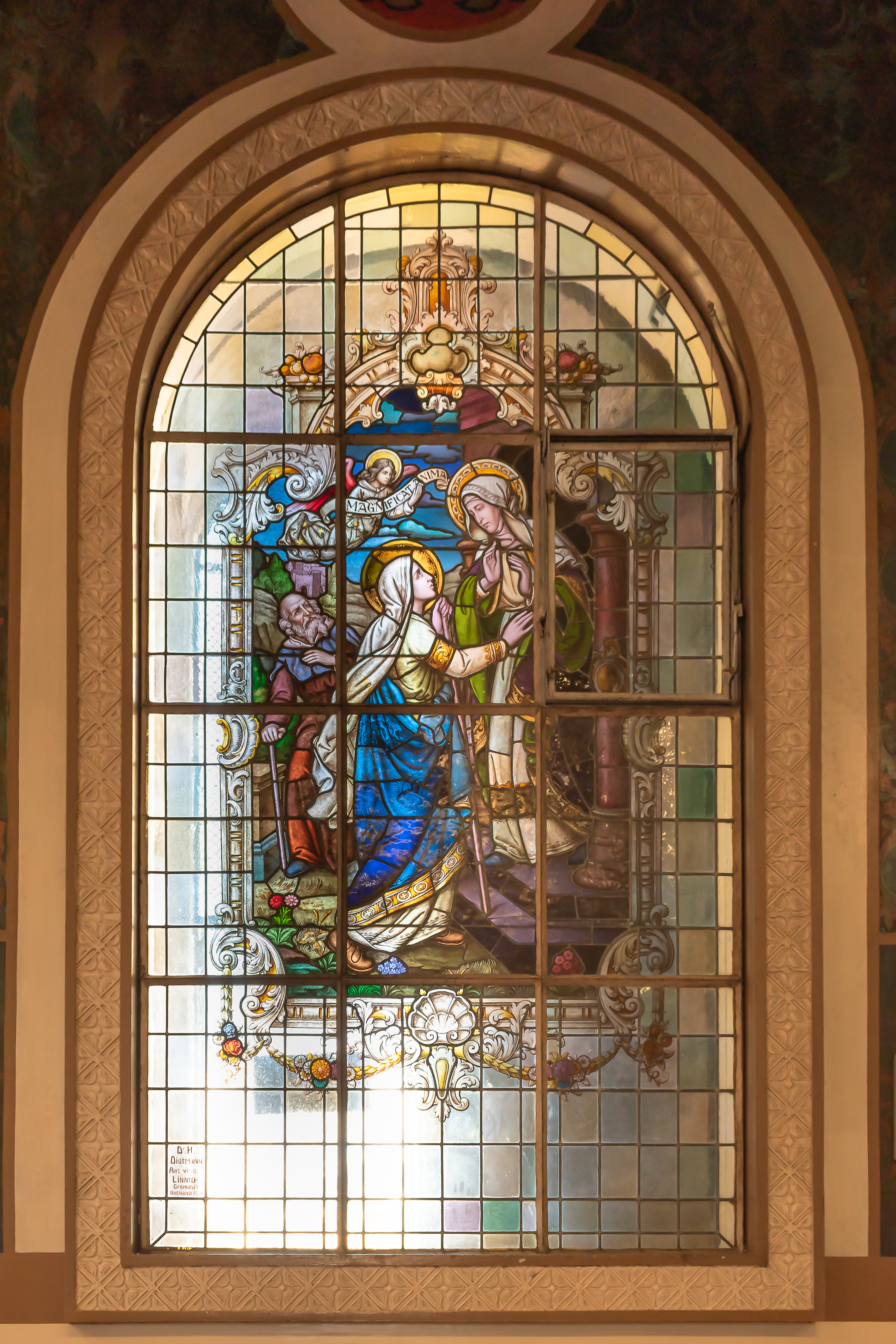Why 72 disciples? Biblical numbers always have significance. Genesis describes the division of the non-Jewish world into 70 nations. Moses was directed to bring 70 elders to the door of the Tabernacle so they could receive the spirit and be his assistants. The Sanhedrin (the ruling body of Israel) was made up of 71 elders. By choosing 72 disciples, Jesus sends a signal that he is bringing the Old Covenant to its fulfillment, and including the 70 Gentile nations as well.
We see also that Jesus is establishing a kind of methodology and hierarchy. He is the Head; he has chosen 12 Apostles as forerunners of the bishops; he now gathers another group to help them with their mission. Some traditions say St. Luke was one of the 72 disciples sent out in pairs ahead of him, but this is impossible to know with certainty, though this event is only recorded in his Gospel!
Luke is the only Gospel writer who was not Jewish – it seems that he was of Greek origin, and his Gospel was probably originally written in the excellently structured Greek found in the oldest copies. He was not an eyewitness to Jesus’ full ministry, but wanted to investigate everything accurately anew and write it down (see Luke 1:1-4). He was a Gentile convert, and his writing shows a particular sensitivity to evangelizing Gentiles (see the Good Samaritan, the widow of Zarephath, Naaman the Syrian, and the one grateful leper, who was a Samaritan). A physician and maybe an artist, Luke probably met Paul at Troas and remained with him even when he was imprisoned in Rome, writing the Acts of the Apostles.
Did Luke know Jesus’ mother? It seems that he must have known her, or someone who was privileged to have known her, because it is only in his Gospel that we have any detailed accounts of several events in her life: the Annunciation, the Visitation of Elizabeth, the Magnificat, the Presentation in the Temple, and the story of Jesus’ being left in Jerusalem at the age of 12. Without Luke’s excellent history, we would not have these narratives from antiquity!
Whether or not St. Luke was one of the 72 sent out by Jesus in today’s Gospel, he certainly did his part as a laborer for the Lord’s harvest! Today, let’s ask him to intercede before the Master of the Harvest, for our Church and our world, that many more might respond to this call to bring God’s Truth and Love to every human heart.
¿Por qué 72 discípulos? Los números bíblicos siempre tienen un significado. El Génesis describe la división del mundo no judío en 70 naciones. Moisés recibió instrucciones de llevar a 70 ancianos a la puerta del Tabernáculo para que pudieran recibir el espíritu y ser sus asistentes. El Sanedrín (el cuerpo gobernante de Israel) estaba formado por 71 ancianos. Al elegir a 72 discípulos, Jesús envía una señal de que está llevando la Antigua Alianza a su cumplimiento, incluyendo también a las 70 naciones gentiles.
Vemos también que Jesús está estableciendo una especie de metodología y jerarquía. Él es la Cabeza; ha elegido a 12 Apóstoles como precursores de los obispos; ahora reúne a otro grupo para ayudarlos con su misión. Algunas tradiciones dicen que San Lucas fue uno de los 72 discípulos enviados en parejas delante de él, pero esto es imposible de saber con certeza, aunque este evento solo está registrado en su Evangelio.
Lucas es el único evangelista que no era judío; parece que era de origen griego, y su Evangelio probablemente fue escrito originalmente en el griego excelentemente estructurado que se encuentra en las copias más antiguas. No fue testigo ocular del ministerio completo de Jesús, sino que quiso investigar todo con precisión de nuevo y escribirlo (ver Lucas 1,1-4). Era un gentil converso, y sus escritos muestran una sensibilidad particular para evangelizar a los gentiles (ver el Buen Samaritano, la viuda de Sarepta, Naamán el sirio y el leproso agradecido, que era samaritano). Médico y tal vez artista, Lucas probablemente conoció a Pablo en Troas y permaneció con él incluso cuando estaba preso en Roma, escribiendo los Hechos de los Apóstoles.
¿Lucas conoció a la madre de Jesús? Parece que la conocía, o alguien que tuvo el privilegio de conocerla, porque sólo en su Evangelio tenemos relatos detallados de varios acontecimientos de su vida: la Anunciación, la Visitación de Isabel, el Magníficat, la Presentación en el Templo y la historia de cómo Jesús fue dejado en Jerusalén a los 12 años. Sin la excelente historia de Lucas, ¡no tendríamos estas narraciones de la antigüedad!
Independientemente de si San Lucas fue uno de los 72 enviados por Jesús en el Evangelio de hoy, ¡ciertamente hizo su parte como trabajador de la cosecha del Señor! Hoy, pidámosle que interceda ante el Dueño de la cosecha, por nuestra Iglesia y nuestro mundo, para que muchos más puedan responder a este llamado a llevar la Verdad y el Amor de Dios a cada corazón humano.
 Kathryn Mulderink, MA, is married to Robert, Station Manager for Holy Family Radio. Together they have seven children (including Father Rob), and eleven grandchildren. She is President of the local community of Secular Discalced Carmelites and has published five books and many articles. Over the last 30 years, she has worked as a teacher, headmistress, catechist, Pastoral Associate, and DRE, and as a writer and voice talent for Catholic Radio. Currently, she serves the Church by writing and speaking, and by collaborating with various parishes and to lead others to encounter Christ and engage their faith. Her website is www.KathrynTherese.com
Kathryn Mulderink, MA, is married to Robert, Station Manager for Holy Family Radio. Together they have seven children (including Father Rob), and eleven grandchildren. She is President of the local community of Secular Discalced Carmelites and has published five books and many articles. Over the last 30 years, she has worked as a teacher, headmistress, catechist, Pastoral Associate, and DRE, and as a writer and voice talent for Catholic Radio. Currently, she serves the Church by writing and speaking, and by collaborating with various parishes and to lead others to encounter Christ and engage their faith. Her website is www.KathrynTherese.com
Feature Image Credit: Tim Wildsmith, unsplash.com/photos/an-open-book-sitting-on-top-of-a-wooden-table-cMvzDFaMMqw












